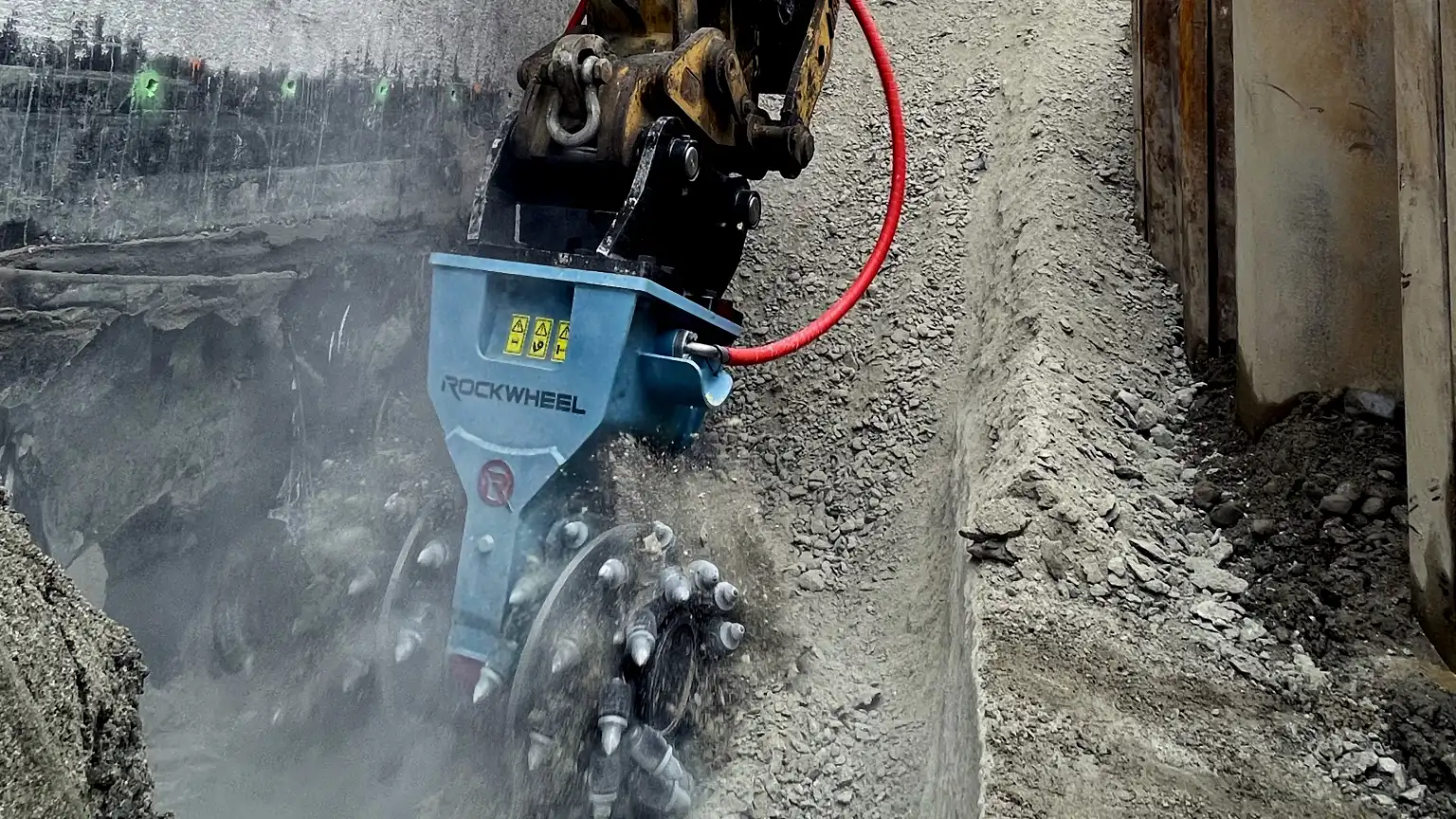Simple Steps to Ensuring Long Life for Your Rockwheel: A Maintenance Overview

Maintaining your Rockwheel’s hydraulic system is critical to extending its lifespan and ensuring peak performance. The video outlines several essential tasks that, when performed regularly, will keep your equipment in top condition:
- Keep Hydraulic Hoses Clean
Contaminants in hydraulic hoses can lead to system failure, so always keep them clean and free from debris. Dirt entering the hydraulic system can cause wear and tear, resulting in costly breakdowns. - Inspect Picks Regularly
One of the most important components of your Rockwheel is the picks. Ensure each pick is spinning freely and check for signs of wear, such as asymmetrical wear patterns, missing carbide tips, or broken components. Picks that don’t spin freely will reduce efficiency, wear out faster, and cause uneven cuts. Replacing worn picks in a timely manner can significantly extend the life of your drum and the overall machine. - Check Pick Holders for Cracks
Pick holders are designed to withstand heavy use, but over time, they can develop cracks or break. Regular inspections will help you identify any damage early, allowing you to replace or repair pick holders before more severe damage occurs. - Examine Bolts, Fittings, and Flanges
Loose bolts, fittings, or flanges can cause significant problems, including hydraulic fluid leaks, which impact machine performance and safety. Routinely check these components for tightness and wear to avoid unexpected failures. - Grease the Drum Once Per Shift
Drum greasing is an essential maintenance task that ensures smooth operation and prevents friction-related damage. Greasing the drum once per shift, at a minimum, helps reduce wear on key moving parts and keeps the drum running efficiently, even under heavy workloads.
Find out how to grease your Rockwheel correctly here on our support page
- Proper On-Site Storage
Proper storage of your Rockwheel and its components is just as important as routine inspections. Avoiding environmental exposure such as rain, mud, or dust helps prevent corrosion and contamination. This simple practice can save you time and money in the long run by preserving the integrity of hydraulic systems and mechanical parts.
Why Regular Maintenance Matters
Performing regular maintenance on your Rockwheel is crucial to not only extending its life but also ensuring it continues to perform efficiently and safely on-site. By conducting routine checks—like inspecting pick condition and greasing the drums—you prevent unexpected breakdowns and costly repairs.
Rockwheels are built to handle tough jobs, but proper care is essential to keeping them in optimal working condition. When neglected, even minor issues can snowball into major failures, resulting in downtime and project delays. On the other hand, a well-maintained Rockwheel will last longer, operate more effectively, and provide better precision on demanding tasks such as trenching, cutting rock, or tunneling.
By following these maintenance practices, you’ll maximize the efficiency of your machine, ensure job-site safety, and get the most out of your Rockwheel investment for years to come.
